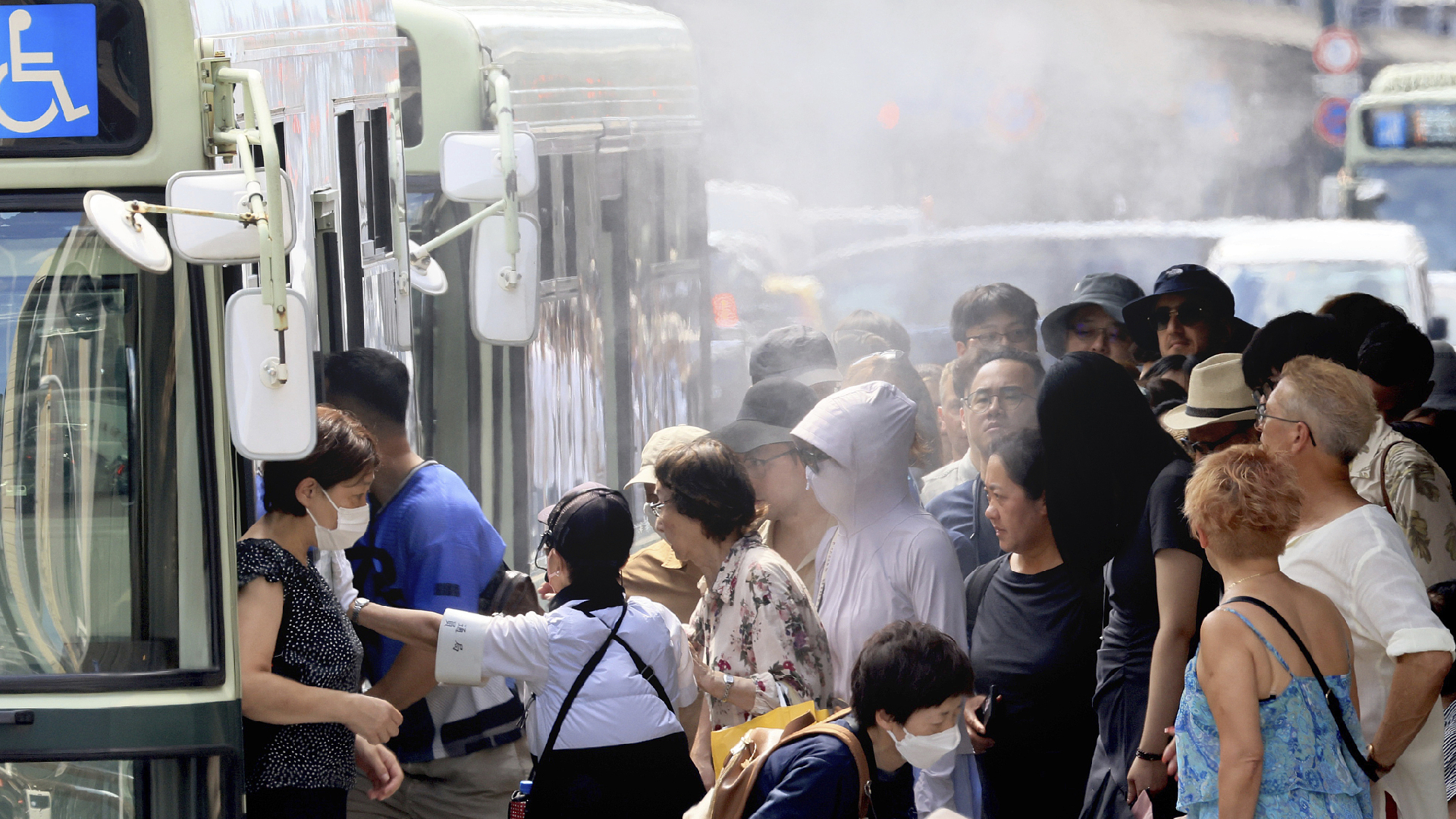Japan, South Korea persistently gripped by severe heat waves
Severe heat waves persist in Japan and South Korea.

Much of western and eastern Japan is forecasted to see daytime temperatures over 35 degrees Celsius, prompting heatstroke warnings in 37 prefectures.
Overnight warmth has led to forecasted daytime temperatures reaching critical levels on Sunday, particularly in Kurume, Fukuoka, where a maximum of 39 degrees Celsius is expected, and Saga and Kumamoto, where temperatures may hit 38 degrees.
In Tokyo, the mercury is predicted to hit 35 degrees Celsius, marking the city's first encounter with such intense heat in four days. Nagoya, on the other hand, anticipates its 11th straight day of sizzling 37-degree temperatures.
By 11 a.m. on Sunday, the Wet Bulb Globe Temperature (WBGT), which gauges the risk of heatstroke, hit the red level, which indicates the most severe risk on the country’s five-level heat stress scale, according to official data.
The WBGT assesses heatstroke danger by factoring in temperature, humidity, and sunlight intensity, offering an empirical indication of the heat stress experienced by individuals.
Authorities are advising the public to remain in cool, indoor environments and to plan their summer activities carefully to avoid heat exposure.
People are encouraged to take precautions against heatstroke seriously and modify their activities to stay safe during this intense heat spell.
In a related note, South Korea is also facing unprecedented temperatures as the mercury soared past 40 degrees Celsius for the first time since 2018, as reported by meteorological authorities.
This intense heat is expected to persist across South Korea for another 10 days, according to meteorological predictions.
Historically, South Korea has witnessed temperatures exceeding 40 degrees Celsius on only eight occasions, with the earliest recorded in August 1942 and six instances in 2008.
Since the end of July, following the monsoon period, South Korea has been relentlessly hit by severe heat waves.
This extreme weather has led to a significant rise in heat-related health issues, with 154 new cases reported on Saturday alone, according to the Korea Disease Control and Prevention Agency. From Monday to Friday of the same week, there were 386 cases reported nationwide.
Additionally, the heat has been devastating for the agricultural sector, with over 250,000 livestock casualties reported due to the heat, as stated by the Ministry of Agriculture, Food and Rural Affairs.
Emily Johnson for TROIB News
Find more stories on the environment and climate change on TROIB/Planet Health












